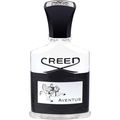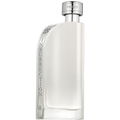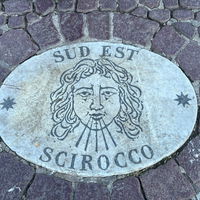The historical Nero, as a well-known emperor, certainly has the worst reputation; he is regarded as a criminal, the destroyer of Rome and a murderer, a narcissist and a madman. Who does not know the image of him crazily singing and playing a lyre while Rome burns? Labeled as an arsonist, he has been given a reputation that he will likely never shake off.
In fact, assuming one takes a nuanced look at the sources, this is not the case at all. Hollywood creates a myth-making that is unparalleled, and that is simply a fact.
A critical engagement with the real person of Nero absolutely exceeds the scope here, but it also fits well with the fragrance:
If you approach it as I do, you initially think: Nero, I studied you for a long time, it feels as if I know you. Humanly, slanders also linger in memory, and I expect a smoky component in the perfume that bears your name. Niente, nada. Nothing smoky, you are not an arsonist; I also believe that according to the sources, at the time of the fire in Rome in 64 AD, you must have been 50 km away in Antium, at your summer residence (perhaps even bathing and anointed with aromatic oils and indulging in splendid ripe fruits from the imperial gardens and sweet wine. No, definitely so.)
In the judgment of posterity, depending on reception, Nero generally does not come off well and evokes few positive memories. Without condoning any crimes, let us focus on the positive aspects, for there are only these in the fragrance.
The perfume has only loose, cheerful, and fruity, aromatic-spicy accords. Apple, pineapple, and currants served on a cold, silver platter, ice-cold and wafted by birch, a little vanilla and amber, with durability as successful as in projection and sillage. Let’s say the good associations have been perfectly incorporated here, or rather, only Nero’s good sides are reflected in the fragrance. The beauty of the work had also been utilized by Nero himself; yes, he indeed played the lyre, acted in theater, raced chariots, wrote poetry, and wanted to compete artistically - an unusual depiction of an otherwise rather virile and martial princeps. Mazzolari apparently has no trouble dealing with smoky and fruity batches.
The “legend-making” of this fragrance is further supported by the fact that we have the identical twin of Aventus before us, and it is true. They differ at most in the top note, and even there only slightly; someone who does not know WHAT they are wearing would guess Aventus, the more famous one. As if the perfumers knew that Nero was not a heavy, cumbersome powerhouse, but rather composed a more cheerful and positive fragrance with his name. Or, and I believe this more, it was a response and reference to the ancient “Aventus” and its scent from Creed - the one that “arrives,” not only with women but indeed “arrives” (advenire, Advent, an “A(d)ventus” was a ruler who “arrived” back to his people, usually from a successful battle).
Nero is a relaxed yet also demanding fruity fragrance full of masculine zest for life, just like the emperor himself, active, broadly interested, universally bouncing around at every celebration, making his mark, memorable, charismatic, and Nero has that too - a fascination that one simply cannot deny, even despite the predominantly bad press.






 Top Notes
Top Notes  Pineapple
Pineapple Bergamot
Bergamot Apple
Apple Blackcurrant
Blackcurrant Heart Notes
Heart Notes  Birch
Birch Jasmine
Jasmine Patchouli
Patchouli Rose
Rose Base Notes
Base Notes  Musk
Musk Amber
Amber Vanilla
Vanilla













 BertolucciK
BertolucciK Coolrunner
Coolrunner Waffeleisen
Waffeleisen DerHoelgi
DerHoelgi Turbobean
Turbobean Libre
Libre Ergoproxy
Ergoproxy MlleJeanne
MlleJeanne TheScenter
TheScenter Pateratzi
Pateratzi





























